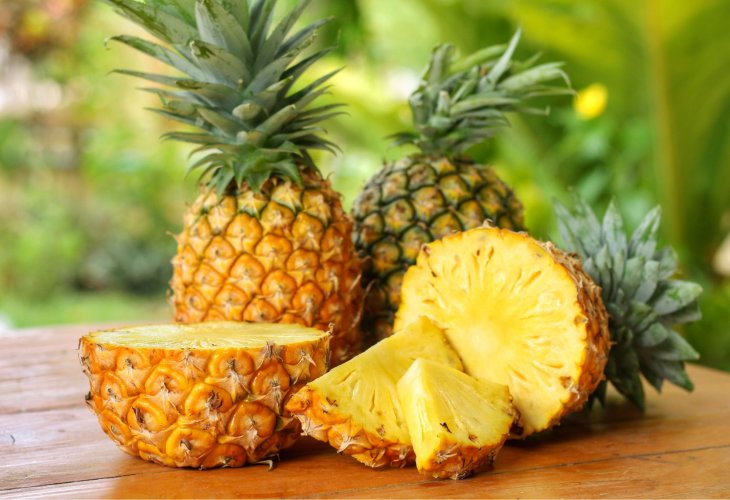Surprising Benefits and Risks of Pineapple: What You Need to Know
Known as 'anãna' by indigenous people, meaning 'all the good', is pineapple truly nature's gift? Discover its hidden benefits and potential downsides.

In its native lands, pineapple is revered as a legendary fruit.
"Anãna," is what the Indigenous peoples of Paraguay and Brazil call it, freely translated as "all the good."
Studies on fresh pineapple (not canned) reveal it as an 'energy bomb' providing our body with countless benefits, or as the Indigenous would say - all the good.
In the past, pineapples were a luxury for the wealthy, proudly displayed on their tables. Others had to suffice with canned pineapples, which lacked the full benefits of the fresh fruit (and we'll explain why soon).
So what's all the good? Recent studies demonstrate that fresh pineapple offers various health benefits, but most notably, its high potassium content helps regulate blood pressure.
Research highlights: "Many people are unaware of the incredible health benefits of fresh pineapple and pineapple juice. It's a well-known remedy for managing high blood pressure, due to the fruit's high potassium content. Additionally, its low sodium content makes it more beneficial for those with hypertension."
Because it's low in sodium, it also reduces the risk of heart disease, according to the study. "Pineapple contains a clot-resistant property known as bromelain, which prevents blood clots and promotes better blood flow in the body. It also has numerous vitamins, minerals, and dietary fibers that lower cancer risks."
When is fresh pineapple not recommended?
Bromelain
The enzyme bromelain is excellent at digesting proteins, but those sensitive to it may experience allergic reactions such as tongue and facial inflammation, facial itching, and more when consuming pineapple.
These effects usually self-resolve, but if not, seek medical advice.
If you're allergic to anything like flowers, pollen, latex, celery, carrots, or fennel, you may also be allergic to pineapple.
Taking medications? Avoid pineapple
If you're on medication, be aware that bromelain interacts with drugs and can increase bleeding risks, especially with clopidogrel, warfarin, and aspirin, among others.
Acidity, folks, acidity
Pineapple is highly acidic, and eating it daily for a long time can erode tooth enamel. If concerned, reduce consumption to once a week or less.
Nature's laxative
If you experience frequent constipation, you'll be glad to know pineapple acts as a natural laxative. However, for those with the opposite condition, it's better to avoid it.
Pineapple and Diabetes
Pineapple contains a large amount of fructose, raising blood glucose levels, so it's less advisable for diabetics. If you're diabetic and wish to enjoy this fruit, consult your doctor for recommended portions to avoid a dangerous sugar spike.
In conclusion,
While the fruit itself has valuable benefits, non-fresh options like dried or canned pineapple often contain sugars and preservatives we should all avoid.

